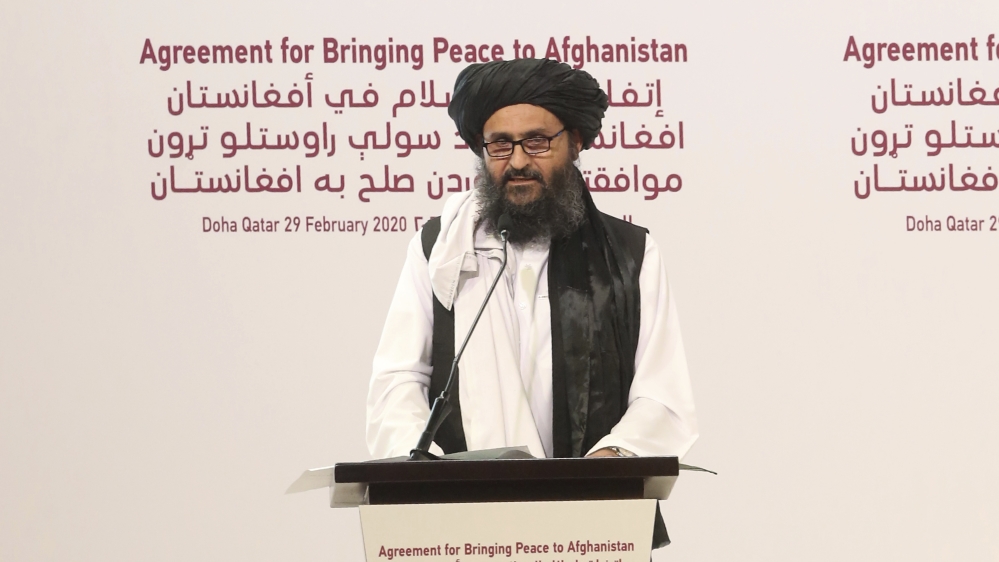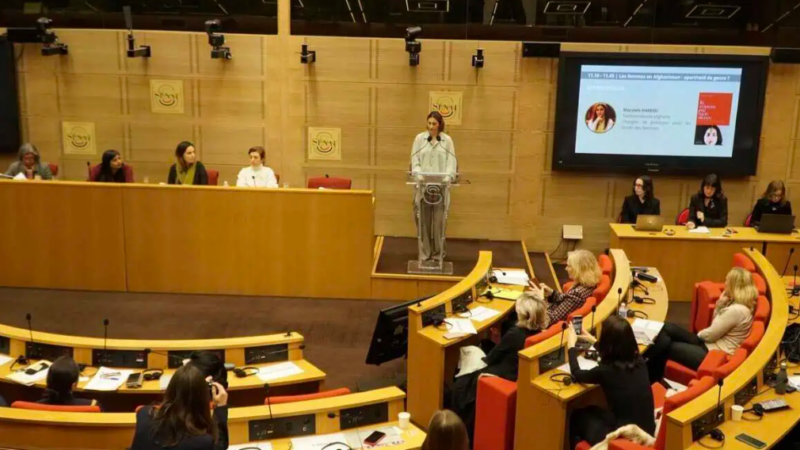Pakistan sanctions Taliban ‘to avoid global finance blacklist’

Pakistan has issued sweeping financial sanctions against Afghanistan’s Taliban, just as the rebel group is in the middle of a United States-led peace process in the neighbouring country.
The orders, which were made public late on Friday, identified dozens of individuals, including the Taliban’s chief peace negotiator Mullah Abdul Ghani Baradar and several members of the Haqqani family, including Sirajuddin, the current head of the Haqqani Network and deputy head of the Taliban.
The list of sanctioned groups included others besides the Taliban and was in keeping with a five-year-old United Nations resolution sanctioning the Afghan group and freezing their assets.
The orders were issued as part of Pakistan’s efforts to avoid being blacklisted by the Financial Action Task Force (FATF), which monitors money laundering and tracks “terrorist” groups’ activities, according to security officials who spoke to The Associated Press on condition of anonymity because they were not authorised to speak to the media.
However, in a statement on Friday, Pakistan’s foreign ministry spokesman said it issued the sanctions order on August 18 according to “information contained in the list entry of UN designated individuals and entities”.
“These lists contain names of individuals and entities designated under the two sanction regimes established pursuant to the UN Security Council resolutions,” it said, denying any new sanctions were imposed, as were reported in “sections of media”.
Last year, the Paris-based FATF put Islamabad on a grey list. Until now, only Iran and North Korea are blacklisted, which severely restricts a country’s international borrowing capabilities.
Pakistan is trying to get off the grey list, said the officials.
There was no immediate response from the Taliban, but many of the group’s leaders are known to own businesses and property in Pakistan.
Many Taliban leaders, including those heading the much-feared Haqqani Network, have lived in Pakistan since the 1980s, when they were part of the Afghan “mujahideen” (resistance fighters) and allies of the US to end the 10-year invasion of Afghanistan by the former Soviet Union. That conflict ended in February 1989.
Pakistan has denied giving sanctuary to the Taliban following their removal in 2001 by the US-led coalition but Washington and Kabul have routinely accused Islamabad of giving them a safe haven.
Still, it was Pakistan’s relationship with the Taliban that Washington eventually sought to exploit to move its peace negotiations with the armed group forward.
The US signed a peace deal with the Taliban on February 29 this year, which is intended to end Washington’s nearly 20 years of military engagement in Afghanistan, and has been touted as the nation’s best hope for peace after more than four decades of war.
But even as Washington has already begun withdrawing its soldiers, efforts to get talks started between Kabul’s political leadership and the Taliban have been stymied by delays in a prisoner release programme.
The two sides are to release prisoners: 5,000 by the government and 1,000 by the Taliban, as a goodwill gesture ahead of the talks. Both sides blame the other for the delays.
Pressuring the Taliban?
The timing of Pakistan’s decision to issue the orders implementing the restrictive sanctions could also be seen as a move to pressure the Taliban into a quick start to the intra-Afghan negotiations.
Kabul has defied a traditional jirga (council) order to release the last Taliban prisoners it is holding, saying it wants 22 Afghan commandos being held by the armed group freed first.
As well as the Taliban, the orders also target al-Qaeda and the ISIL (ISIS) group affiliate which has carried out deadly attacks in both Pakistan and Afghanistan.
They also take aim at outlawed Pakistani groups such as Tehreek-e-Taliban Pakistan (TTP), thousands of whom are believed by the UN to be hiding in remote regions of Afghanistan.
The TTP has declared war on Pakistan, carrying out one of the worst attacks in the country in 2014, killing 145 children and their teachers at an army public school in northwest Pakistan.
The orders also target outlawed anti-India groups considered to be allied with Pakistan’s security services.






